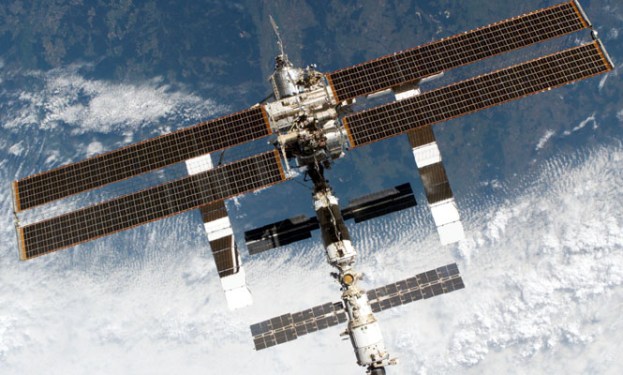 The decision to rely on other countries for manned space flight in the immediate future took a bit of a hit Wednesday, as an unmanned Russian rocket crashed just five minutes after liftoff en route to the International Space Station.
The decision to rely on other countries for manned space flight in the immediate future took a bit of a hit Wednesday, as an unmanned Russian rocket crashed just five minutes after liftoff en route to the International Space Station.
The rocket was intended to ferry an unmanned cargo ship to the ISS with supplies for the six crew members currently aboard the station. Instead of making the trek into outer space, the rocket and its cargo arced into the Siberian forest when one of the engines failed.
According to NASA space station manager Michael T. Suffredini, the ISS and its crew are currently in no danger, having been resupplied in July by the last of the US space shuttles. However, three crew members are scheduled to be replaced in September via the Soyuz capsules, and another three in December.
Early reports suggest that the Russian space agency could delay manned missions for the immediate future if the reasons behind this week’s crash are not determined soon. While NASA has recently begun investing heavily in development of private-sector space travel, the Russian rockets and Soyuz capsules are currently the only method of reaching the space station for astronauts and cosmonauts.
There are currently a pair of three-man Soyuz capsules docked at the station for use as escape pods, giving the crew members a way back to Earth — but in the event that manned missions to the station aren’t possible, the ISS will be short-staffed after the first team leaves, and then may have to go unmanned if new crew members aren’t sent up by the end of the year.
The New York Times reports that this is a rare problem for the usually dependable Russian rockets and cargo ships, though this was the second issue in the last month for crafts launched from the Baikonur launching pad in Kazakhstan. On August 18, a rocket sent a telecommunications satellite into the wrong orbit.
Editors' Recommendations
- SpaceX Dragon spacecraft completes final mission ahead of crewed launch
- How to keep astronauts sane: The psychology of long-duration space missions
- NASA funding new tech for accessing food and water on lunar missions
- Here are all the science projects that SpaceX will deliver to the ISS
- Resupply mission to the ISS carries cheese and gummy sweets to hungry astronauts




